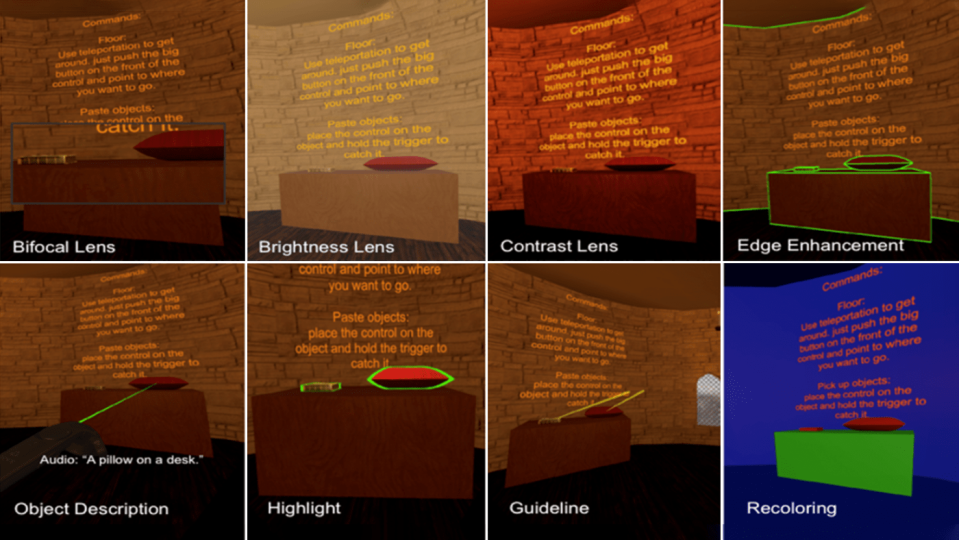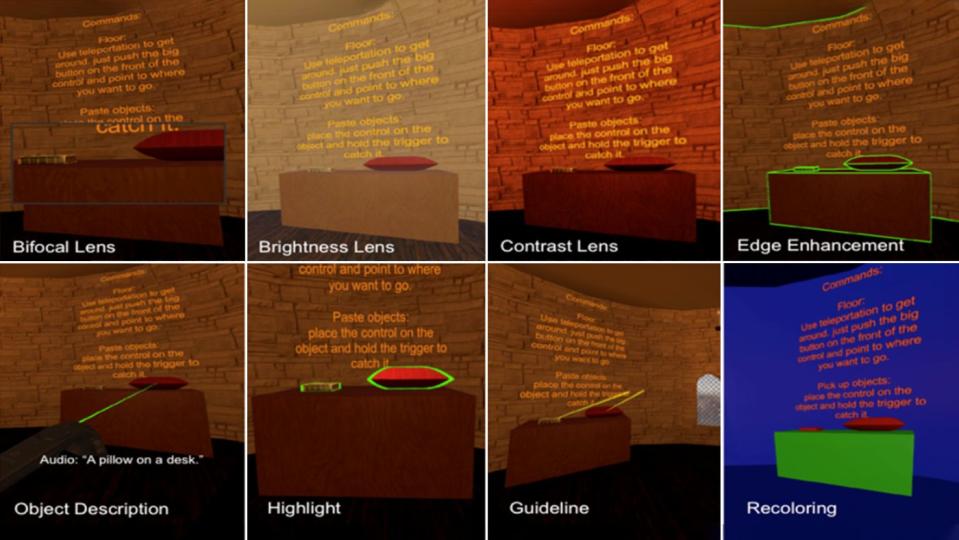Microsoft is making VR better for those with vision problems
SeeingVR comes with a set of 14 tools to help those with low vision.
Virtual reality can be a rush to the senses, but not if you have vision problems. Microsoft researchers are trying to solve that problem via a tool kit for Unity VR developers to help players with low vision. Since vision problems vary by individual, the research team at Microsoft decided on a tool kit approach so players can customize their experience. The 14 tools include a bifocal lens, a magnifier, controls to adjust for brightness and contrast, edge enhancement and depth measurements. Players can also opt to have objects in a scene described or read out loud.
The toolkit, known as SeeingVR, was tested on 11 people with vision problems -- and the team found that all participants could complete the tasks such as shooting objects or menu selection more quickly with SeeingVR, when compared to the default mode. The toolkit is currently only available for Unity VR developers. But as Unity is one of the biggest VR development platforms, this new tech could still be widely adopted before long.
Cornell Tech graduate student and Microsoft intern Yuhang Zhao will be presenting the results of their research in a paper titled "SeeingVR: A Set of Tools to Make Virtual Reality More Accessible to People with Low Vision" at this year's CHI conference in Glasgow. The paper summarizes joint research conducted with Microsoft researchers Ed Cutrell, Christian Holz, Eyal Ofek, Andrew Wilson and Meredith Ringel Morris. You can watch a demo of SeeingVR below:

 Yahoo Finance
Yahoo Finance 


